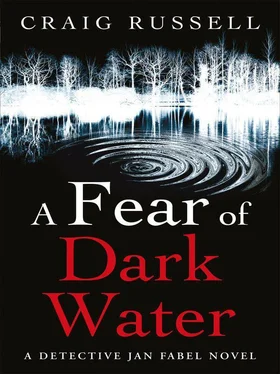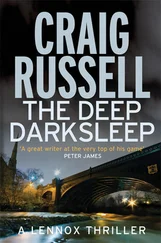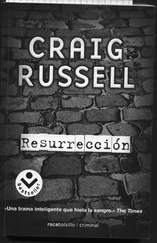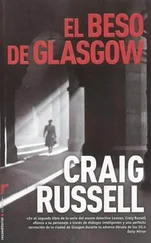Craig Russell - A fear of dark water
Здесь есть возможность читать онлайн «Craig Russell - A fear of dark water» весь текст электронной книги совершенно бесплатно (целиком полную версию без сокращений). В некоторых случаях можно слушать аудио, скачать через торрент в формате fb2 и присутствует краткое содержание. Жанр: Триллер, на английском языке. Описание произведения, (предисловие) а так же отзывы посетителей доступны на портале библиотеки ЛибКат.
- Название:A fear of dark water
- Автор:
- Жанр:
- Год:неизвестен
- ISBN:нет данных
- Рейтинг книги:5 / 5. Голосов: 1
-
Избранное:Добавить в избранное
- Отзывы:
-
Ваша оценка:
- 100
- 1
- 2
- 3
- 4
- 5
A fear of dark water: краткое содержание, описание и аннотация
Предлагаем к чтению аннотацию, описание, краткое содержание или предисловие (зависит от того, что написал сам автор книги «A fear of dark water»). Если вы не нашли необходимую информацию о книге — напишите в комментариях, мы постараемся отыскать её.
A fear of dark water — читать онлайн бесплатно полную книгу (весь текст) целиком
Ниже представлен текст книги, разбитый по страницам. Система сохранения места последней прочитанной страницы, позволяет с удобством читать онлайн бесплатно книгу «A fear of dark water», без необходимости каждый раз заново искать на чём Вы остановились. Поставьте закладку, и сможете в любой момент перейти на страницу, на которой закончили чтение.
Интервал:
Закладка:
Not that Roman cared that much about the look of his apartment. No one ever came here. No friends, no women, nobody. And it didn’t carry any great significance for him personally; he did not attach the concept of home to this place. If fact, Roman Kraxner didn’t really have much of a concept of home. Or at least, not in the physical world. He did have a sense of belonging, but it was not anchored in any tangible physical reality; for Roman, there was another universe of opportunity, of freedom from the constraints of his body, that was his true medium. That was where he truly belonged. Where he truly existed.
After he was convinced the Albanian had in fact gone back into his apartment and was not coming up the stairs to challenge him, Roman shuffled across the messy living room, past the bank of monitors, speakers, hard disks and keyboards arrayed on the table against the far wall, and made his way to the toilet. His gut was aching as it always did when he was stressed — as it did most of the time — and he felt the urge to void his bowels become more than vague. Plugging his iPod earphones into his ears, he dropped his tracksuit bottoms and lowered the one hundred and eighty kilograms of his bulk onto the toilet. As he listened to music and played computer games, Roman strained until his breathing became even more laboured and his face even more livid than usual. Nothing.
It was, as his doctor had explained, the inevitable result of Roman’s diet, devoid as it was of anything that looked remotely like it had grown in the ground. What Roman had not explained to his physician was that he despised anything that smacked of the natural world; he relished artificiality, the semblance of synthesis. The more processed, the more manufactured the look of the food, the more Roman liked it. He preferred his meat ground, pulped, extruded. Any fibre he consumed lay hidden as a paste for bulking his hamburgers and hot dogs, his meat patties and battered chicken pieces. The bread buns and subs that his meat came in had to be white and smooth with no hint of a cereal origin or texture. His preference for vivid unnatural colours in the desserts, the ice creams and the beverages he consumed allowed him to place a conceptual distance between himself and anything resembling a dairy. It was the main reason Roman favoured American fast-food outlets over local Schnellimbiss or Wurstchenbude snack stands: there was a science and an art to making food look as if it had little or nothing to do with the natural world; and it seemed only natural to Roman that it had been perfected by the same nation that had put a man on the moon.
After twenty minutes the urge to defecate remained undimmed, but the spasms in Roman’s bowels had still failed to produce anything. It had been over a week since he had had a productive bowel movement. Sighing, he pulled up his tracksuit bottoms and made his way back through to the lounge-cum-diner and to the table where he had his computers set up. It was a gateway to that other universe, to those other identities. It purred at him: the soft whirring of internal cooling fans in the two 8-core MacPros, the massive HP, the five external drives that, between them, gave him seven terabytes of data storage, the blade server unit he had built himself. Thousands of euros’ worth of computer technology purred a soft invitation to another life.
This small area of shining technology was the only part of his apartment that was clean and tidy. Roman kept this part of his environment dust-free, ordered, illuminated in the otherwise darkened room. It was also where he had his most expensive pieces of furniture: the sturdy table on which he had his equipment arrayed, like the command desk of a space-programme mission-control room, and the chair that Roman had had specially made for himself. It was the most expensive thing he had ever purchased; more expensive even than any single piece of his computer hardware. The chair moulded itself into his body, or his body moulded into it; it swivelled, tilted, glided in response, it seemed to Roman, to his will. It was the ultimate computer chair, the brochure had assured him. But where the real expense had come had been in having it custom-built to support Roman’s mass. The manufacturers in Munich had sent someone all the way to Hamburg to visit Roman in his apartment. The technician had, at first, looked suspicious when he had seen the modesty and semi-squalor of Roman’s home, but the suspicion had evaporated when he had done a quick mental calculation of the value of the computer-related technology arrayed on the desk. It had almost been as if he had understood Roman; that he had met others like him.
Roman remembered that when he had first sat in the chair the comfort had been sublime. It seemed to support every square centimetre of his body, making him feel, ironically, almost weightless. Now, as he eased himself into the chair, he still experienced some of that sense of relief, of sublime comfort, but less so than before. He knew the reason: the chair had been crafted to fit him perfectly when he had ordered it. Now, three months and seven kilos later, the fit was no longer perfect.
Roman drew as deep a breath as his obesity-hypoventilation syndrome, which compelled him to sleep each night with an oxygen mask, allowed him to draw and switched on his four flat-screen monitors, which had been configured to offer a continuous display. A single window.
Roman loved this moment: immersion. He could disconnect from the mass of his body, from the mass of the world. Like a beached whale swept suddenly back out to sea and into a natural environment of grace, Roman became weightless, formless, in a world where his mind and his mind alone was all that mattered. Here he communicated with other beings without form. Here he could be anyone, anything. Here there were no noisy Albanian neighbours, no colic spasms, no disgust at what looked back at you from the mirror.
Roman would spend the next seven hours, late into the night, in the cybernetic world. He would chat, play, be someone else. He would spend most of that time in Virtual Dimension. He had been a member for nearly a year. In Virtual Dimension he was slim, attractive, successful. Officially, his job was as a private detective and he had a string of mistresses, a penthouse apartment that looked out over the lagoons of New Venice, and he drove a 1962 Ferrari 250 GT convertible. He had dozens of friends and attended e-drugs parties.
In Virtual Dimension he had no weight problem, no grubby Wilhelmsburg flat, no Albanian neighbours. He ached to be back there.
But first, Roman had work to do.
The truth was that although Roman hated living in Wilhelmsburg, he could have easily afforded to move out at any time. The only thing stopping him was the questions that would be asked about how he had managed to amass such a fortune. He had a powerful electromagnet, weighing five kilos, permanently plugged into the power supply, ready to be switched on with a flick of his thumb and swept across his hard drives, destroying the data inside. The evidence.
If they came.
He would play Virtual Dimension soon. But first, he had to attend to business. He sat before thousands of euros’ worth of technology which required constant updating, maintaining, expanding. And the way Roman paid for it all was to divert large sums of money from all around the world into accounts that he had all around the world.
But Roman was more than just a fraudster. He was an artist. No one was looking for him yet, because no one knew yet that the money was missing. Every institution, organisation and company that he had defrauded was hit immediately by a computer virus that erased data, destroyed records, wiped clean all traces of his visit. Each virus was different. Each was an individual, unique creation. A work of art.
Читать дальшеИнтервал:
Закладка:
Похожие книги на «A fear of dark water»
Представляем Вашему вниманию похожие книги на «A fear of dark water» списком для выбора. Мы отобрали схожую по названию и смыслу литературу в надежде предоставить читателям больше вариантов отыскать новые, интересные, ещё непрочитанные произведения.
Обсуждение, отзывы о книге «A fear of dark water» и просто собственные мнения читателей. Оставьте ваши комментарии, напишите, что Вы думаете о произведении, его смысле или главных героях. Укажите что конкретно понравилось, а что нет, и почему Вы так считаете.












